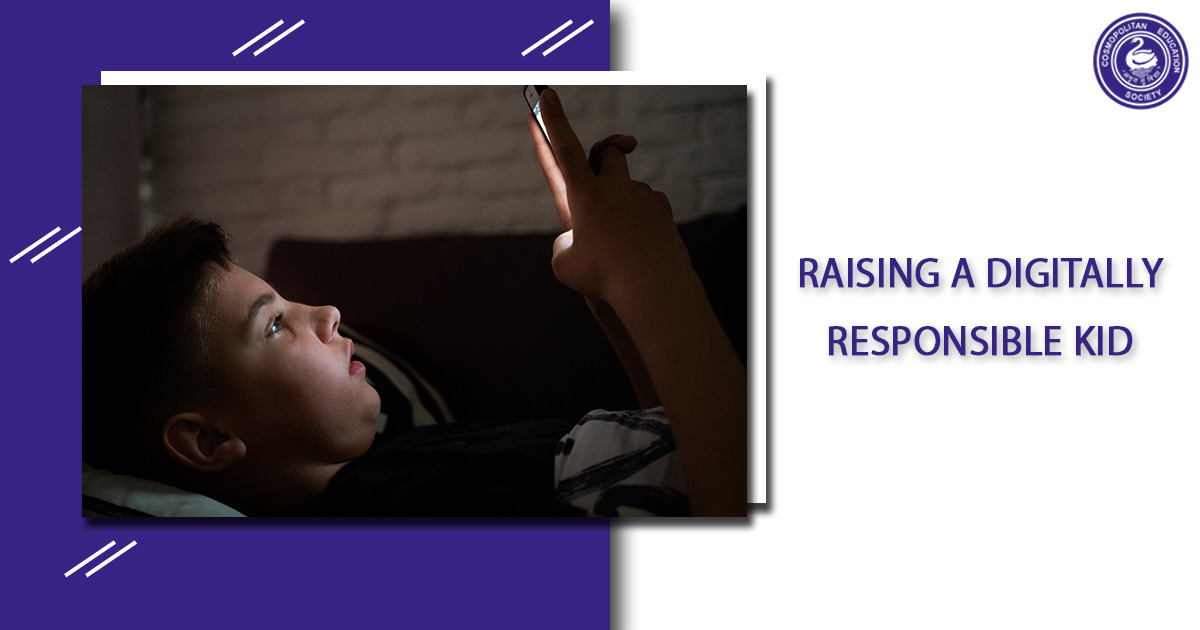
Raising a Digitally Responsible Kid
As parents, we are constantly worrying about the safety of our children. We want to make sure they are well-rounded individuals who can survive worldwide, which also includes educating them on how to be responsible digital citizens. There are many ways to inculcate good digital habits in your children, and one of the most important aspects is to start early. You can commence this by setting basic rules and guidelines for your children from a very nascent age. This will not only help them develop healthy digital habits but also will stay with them throughout their online lives.
Why is it so important to raise digitally responsible children?
1. To help them stay safe online.
2. To help them be responsible consumers of online services available today.
3. They can efficiently use the internet for their daily tasks.
4. So they can be prepared for the future digital world.
5. So they can become good digital citizens.
6. So they can be empowered to use the internet for good.
So here are some very doable tips for raising responsible digital citizens.
1. Be a good role model:
Children often want to do things they see their parents do. Be it good or bad habits. A child of a smoker tends to start smoking at an early age where as a child of a hard-working parent try’s to strive hard to achieve his/her goals. So coming to the very first tip, We at Harshad Valia International School highly recommend parents set a good example for their own children. Be mindful of what you say and do online, and ensure your children see you behaving respectfully and responsibly.
Pro tip: If you wouldn’t want them doing something, don’t do it yourself!
2. Discuss cyberbullying openly:
No one likes to think that their child could be a bully, but it’s important to discuss the challenge anyways. Talk to your children transparently about cyberbullying and how hurtful it can get. Let them know that it’s never okay to harass, threaten, or embarrass someone online, no matter whatever the case is.
If you think your children may be a victim of cyberbullying, keep an eye out for warning signs, such as sudden changes in mood or behaviour, withdrawing from friends or activities, and avoiding digital devices like computers or phones. If you see any of these red flags, talk to your child about them.
Pro tip: Cyberbullying is a punishable offence. Discuss both sides of the coin i.e. they should not bully someone online nor be a victim of some cyberbullies.
3. Educate them on the adequate use of online resources:
There are all sorts of resources available online, and it’s vital for parents to educate their little ones on how to use them efficiently. Here, you can start with the vitals yet basic like teaching them to be responsible internet users, such as not sharing personal information or passwords with anyone, not downloading files from unknown sources, etc. You should also encourage them to use only reputable websites when they’re doing research for school projects.
Pro tip: The Internet can be useful but also dangerous for kids.
4. Model good online behaviour:
You should also model good online behaviour for your kids as a parent. This means being mindful of what you post and share online and not engaging in cyberbullying or other inappropriate behaviour. Additionally, be sure to respect your kids’ privacy by not snooping through their internet history or reading their private messages without their permission. If you do so, they will not respect your privacy too.
Pro tip: Communicate with them if you find them posting inappropriate stuff online.
5. Be open to discussions:
It’s important to have a transparent discussion with your children about their internet usage. This way, you can address any concerns or issues that come up and help them to develop a healthy relationship with technology. Be sure to ask them about their favourite websites and apps, what they like to do online, and how they stay safe. Also, let them know they can come to you with any questions or concerns about their internet usage.
Pro tip: Just be available for their questions.
Conclusion:
There are many reasons why teaching kids about being good digital citizens is important. By doing so, we can help create a better internet for everyone. Raising responsible digital citizens is an alarming task, but it’s one that we can all tackle together. By being proactive and open with our children about the dangers and benefits of technology, we give them the tools they need to make good decisions online. Additionally, by setting clear rules for appropriate online behaviour we can ensure that our kids grow up to be respectful, responsible digital adults.
If your child is already glued to the mobile screen for more than 3 hours a day, here are some tips to reduce mobile addiction in children.
